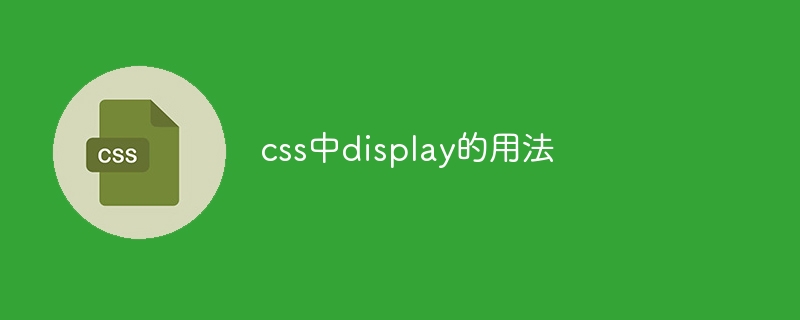
The display attribute is used to specify the layout behavior of the element. There are multiple values to choose from, including block, inline, inline-block, none, flex and grid. Using the display property, you can set the display of an element as a block element, inline element, or other formatting by specifying a value in a CSS style sheet. For example, display: block; displays the element as a block-level element.

Usage of display in CSS
What is the display attribute?
The display attribute is used to define the layout behavior of an element on the page. It specifies how the element is displayed as a block element, an inline element, or other formats. Values for
display The
display property accepts the following values:
How to use the display attribute?
Use the display attribute in a CSS style sheet with the following syntax:
selector {
display: value;
}For example:
p {
display: block;
}This will cause all paragraph elements to be displayed as block-level elements.
Usage examples of the display attribute
Display the title element as a block-level element:
h1 {
display: block;
}Display hyperlinks as inline elements:
a {
display: inline;
}Create buttons that both fill the width and line up with other elements:
button {
display: inline-block;
}Hide page Elements on:
#my-element {
display: none;
}The above is the detailed content of How to use display in css. For more information, please follow other related articles on the PHP Chinese website!